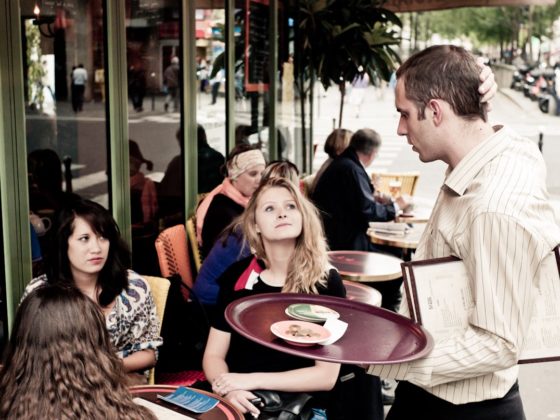It happened again last night.
Here’s the scene:
On the weekends, I sometimes pick up catering gigs. At this particular catering company, I am the new guy, and on this night there are two of us men out of around 20 total staff members.
It’s the end of the night, four other female staff members and myself are scarfing down leftovers before hustling to finish up. We are all joking and laughing, I’m enjoying being included in the camaraderie, particularly after making a rookie mistake earlier in the night.
